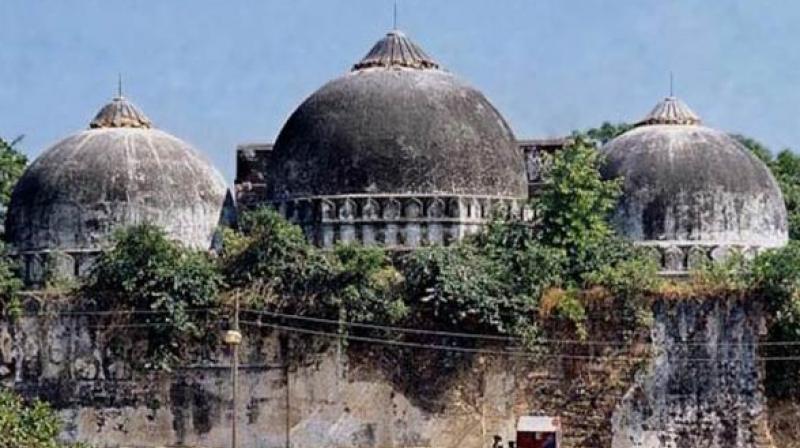Top court says it will only hear Ayodhya land dispute

New Delhi: The Supreme Court on Thursday declined to refer to a larger bench its 1994 verdict for a review over its “questionable observation” that “mosque is not an essential part of the practice of Islam”, paving the way for the apex court to hear the politically sensitive main Ayodhya title suit from October 29. The apex court said now the civil suit on land dispute will be heard by a newly constituted three-judge bench on October 29 as Justice Deepak Misra will retire on October 2 as the CJI.
Holding that the earlier observation was made in the limited context of “land acquisition” during the hearing of the Ayodhya case, the top court in a 2-1 verdict made it clear it will not have any bearing in the Ram Janmabhoomi-Babri Masjid title dispute whose outcome will be eagerly awaited ahead of the 2019 Lok Sabha polls. The judgement was welcomed by the RSS and the BJP as well as Muslim groups for different reasons.
A Muslim group had assailed the observation made by a five-judge Constitution bench in 1994 in the Ismail Faruqui case and had sought its reconsideration on the grounds it had affected the decision of the Allahabad High Court in the land dispute and may affect the pending appeals in the apex court. The majority verdict by Chief Justice Dipak Misra and Justice Ashok Bhushan declined the plea of M. Siddiq, one of the original litigants of the Ayodhya case who has died and is being represented through his legal heir, that the matter be referred to a larger bench.
However, Justice S. Abdul Nazeer, the third judge, who dissented with the majority view, in a stinging judgement said the question whether mosque was essential part of the religion cannot be decided without a “detailed examination of the beliefs, tenets and practice of the faith” and favoured reconsideration of the issue to a larger bench.
He referred to the recent Supreme Court order on female genital mutilation and said the present matter be heard by a larger bench. Justice Nazeer also said the questionable observation of 1994 verdict had permeated into the Allahabad High Court’s decision in the land dispute case but this view was rejected by the majority. In this context, he also highlighted the observations of the high court judge S.A. Khan that mosque is not integral to Islam.
The Supreme Court also emphasised that all religions have to be respected equally by the State. “All mosques, all churches and temples are significant for the community.” “We again make it clear that questionable observations made in Ismail Faruqui’s case were made in context of land acquisition. Those observations were neither relevant for deciding the suits nor relevant for deciding these appeals,” said Justice Ashok Bhushan, who read out the operative part of the 111-page judgement written for the CJI and himself.
“In view of our foregoing discussions, we are of the considered opinion that no case has been made out to refer the Constitution Bench judgment of this Court in Ismail Faruqui case for reconsideration,” Justice Bhushan said. The issue whether mosque is integral to Islam had cropped up when a three-judge bench headed by CJI Misra was hearing a batch of appeals filed against the Allahabad High Court’s 2010 verdict by which the disputed land on the Ram Janmabhoomi-Babri Masjid area was divided into three parts.

